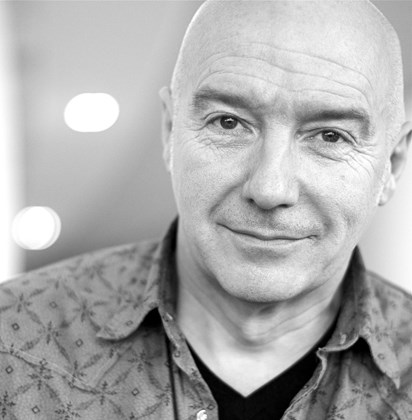Midge Ure, Rickshaw Theatre, Sunday, Sept. 7, 7:30 p.m. 19+. For more information visit rickshawtheatre.com.
The trunk swings open, revealing the merchandise.
The prices of the amps are low - low enough to make a cynical buyer question the ethics of the seller, a would-be music impresario with a practised sinister streak.
Midge Ure, who would go on to play keyboards and sing for new wave band Ultravox, recalls inspecting the "dubiouslysourced equipment." It was the mid-1970s and London boutique owner Malcolm McLaren was scanning the streets of Glasgow for a band that would eventually become legendary nonmonarchists the Sex Pistols.
McLaren asked Ure to join and then, seemingly as an afterthought, inquired if he was a musician.
"I declined the offer to join. .. and bought an amplifier instead," Ure recalls with a laugh.
For 40 years Ure has had a Forest Gump-like existence in the United Kingdom music scene - sharing songwriters with the Bay City Rollers, penning humanitarian tunes with Bob Geldof and upsetting punk rockers by bringing a synthesizer to practice.
Ure has spent nearly 10 years working on his emotional and experimental new album, Fragile.
He questioned his desire to make a new album and the public's desire to hear it. But before he could surround himself with the toys of his trade and craft new music, Ure had to stop drinking.
"There's an awful lot of talk about, 'Did your father drink?' and 'Was it your upbringing in Glasgow?' No, it wasn't, it was none of those things, it was because it was there," he explains.
"I was a latecomer to drinking. I remember standing in the Whiskey a Go Go back in 1979 when some lovely bar lady came up and said, 'What are you guys drinking after the show?' And I said, 'I have no idea because I don't really drink,' and she gave me my first Jack Daniels and Coke," he recalls. "Once you give a child a chocolate, that's it, it's all over. You don't go back."
For Ure, stopping his drinking and recording music are both things he could only do for himself.
"I was trying to stop for everybody else and then I realized that I had to stop for me," he says. "There's a switch on your head, and. .. no one could throw that switch but me."
Asked about the audience for his new album, Ure answers simply.
"Me," he says. "The only person who has to live with this for the rest of their life is me."
He'd recorded a lifetime of songs "with my old pal Jack Daniels next to me," but eventually realized that not only could he do without that crutch, he wanted to.
The result is an album "full of hope."
"If you're going to write about stuff, write about something that someone somewhere will tap into and go, 'That's my life he's talking about. That's my life he's singing about.' Because that's what music should do."
Ure is sticking to hits like "If I Was" and "Vienna" on his current retro tour.
"It's a bit like turning an old friend away from a party," he said. "You've got to remember that that old friend changed your life forever," he says. "What I'm trying to avoid is that tumbleweed moment when you say,
'Here's something from my new album!' And everyone goes, 'Oh God.'" Still, he can't wait to play the new tunes.
Ure is decidedly independent - which caused a little friction in his relationship with BMG International.
"The first thing they did was suggest that maybe I shouldn't write all this new album on my own, and that maybe I shouldn't produce it myself, and maybe I shouldn't do it in my studio. .. and then I thought, 'Maybe I shouldn't sing it, either."
He and the label have since parted ways.
"Why buy a dog and try to turn it into a cat?" he asks. "I'm back being a dog again and quite enjoying it."



